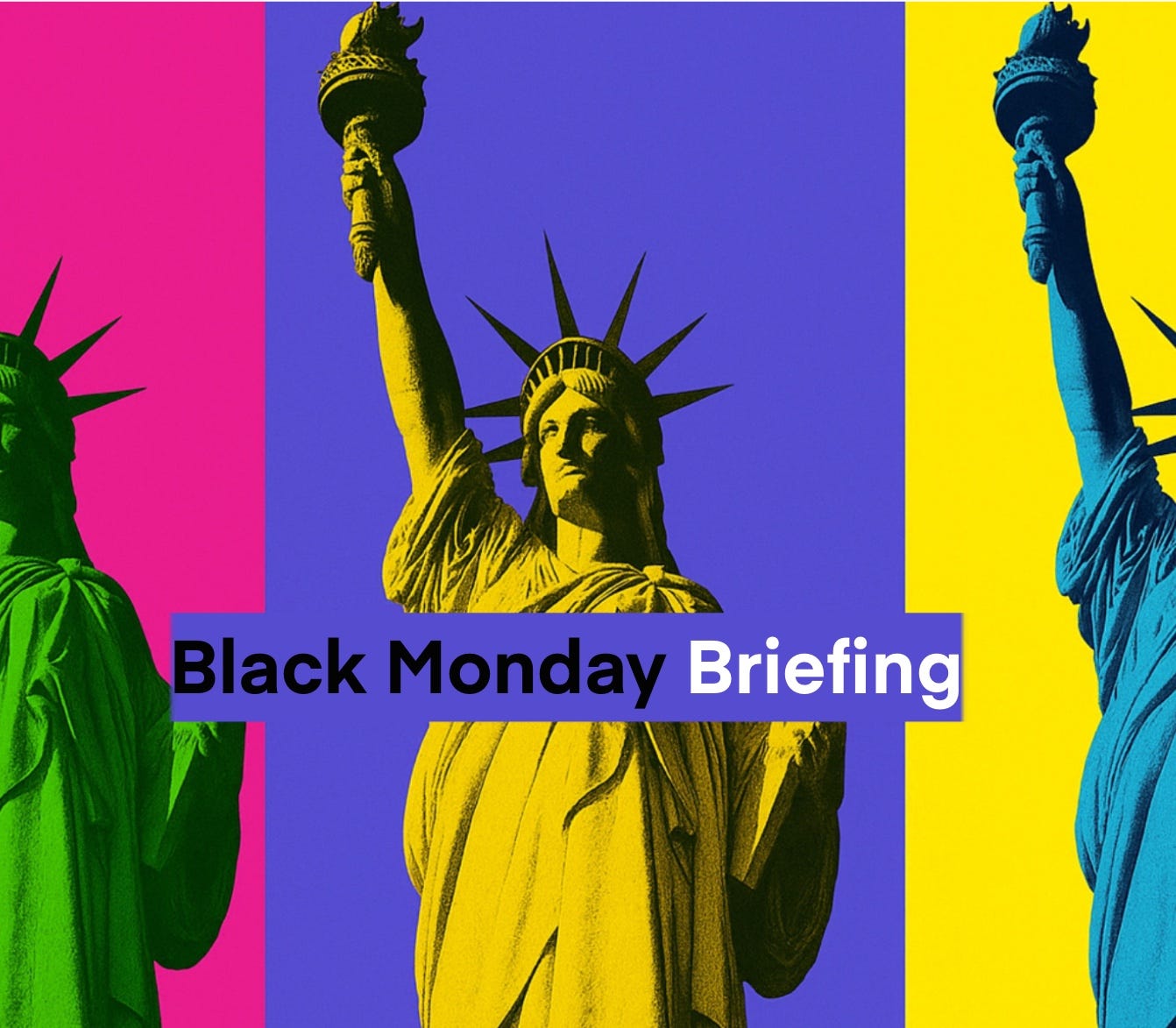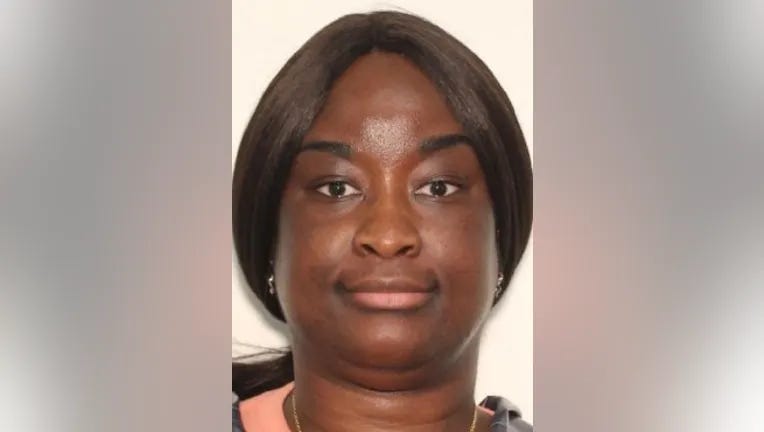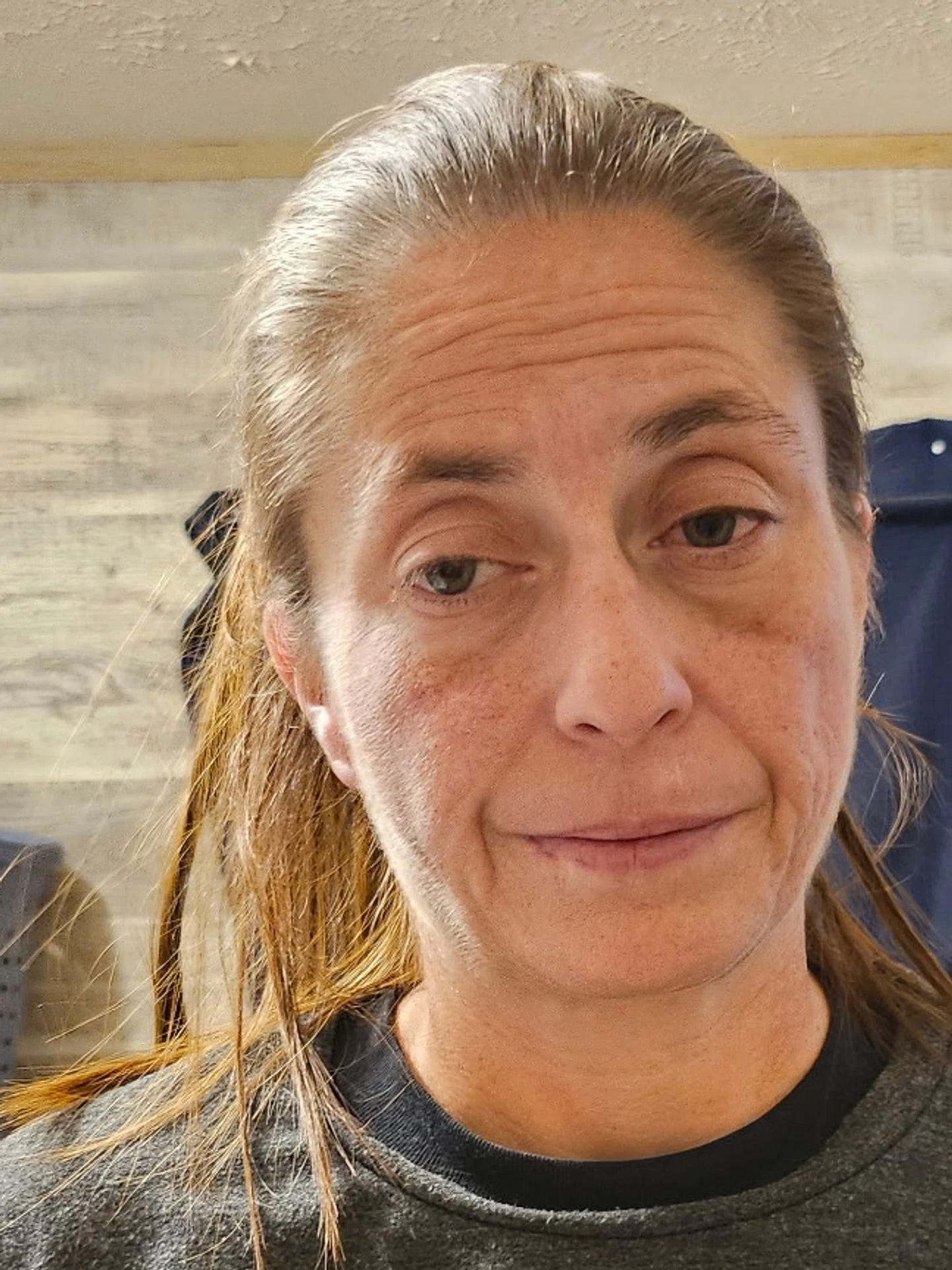Editor’s Note
Family thank you. We crossed 1,000 subscribers a few weeks back, and that’s because you’ve chosen to keep showing up for work that doesn’t chase noise. To the paid subscribers, your support keeps the lights on and buys me the time to write with care. You’ve literally helped me pay bills and carve out hours for truth-telling and I don’t take that lightly.
I also owe you patience. The past few weeks have been quiet here while I’ve been tending to my health and taking some distance from the rage bait timelines that chew through creators in this space. The constant outrage cycle can cloud clarity, and I plan to dig into how our own algorithmic bias feeds that distortion in a coming post.
I’ve been asked often about the hanging in Mississippi. My reluctance to jump in quickly may have cost me a few clicks and paid subs. But if I can’t meet a baseline of verified fact, I won’t publish. I know the difference between an emotionally charged reaction and a fact-based reckoning, and this space has to honor that line. When I have a full, documented account, you’ll see it here not as rage bait, but as a report you can trust.
Now, let’s get into this week’s Black Monday Briefing.
Black Monday Briefing – October 6, 2025
Congress Standoff Shutters Federal Government (Oct. 1): The federal government began a shutdown after lawmakers missed the funding deadline. Hundreds of thousands of workers were furloughed, federal programs faced disruptions, and communities braced for economic fallout. The impasse persisted with no budget deal in sight as of Monday night, heightening concerns for Black federal employees and contractors hit hard by the lapse.
Supreme Court Term Opens With Culture War Cases (Oct. 6): The U.S. Supreme Court kicked off its new term by hearing contentious cases on transgender rights, gun restrictions, and Black voting power. Justices took up a challenge to a ban on anti-LGBTQ “conversion therapy” and will weigh a Louisiana congressional map accused of diluting Black voters. The conservative-majority court’s docket has major implications for civil rights and anti-discrimination protections this term.
Haitian Diaspora, Black Lawmakers Demand New Haiti Policy (Oct. 4): At a Congressional Black Caucus forum, Haitian-American leaders and Black members of Congress urged a shift to Haitian-led solutions for Haiti’s crisis. They criticized heavy-handed foreign interventions and pushed for economic support that empowers local entrepreneurs. With Haiti facing deep security and governance challenges, diaspora voices are insisting U.S. policy center Haitian expertise and accountability.
Texas Cracks Down on Black History in Schools (Oct. 2): Texas officials intensified enforcement of the state’s ban on “critical race theory” and the 1619 Project in Austin public schools. Attorney General Ken Paxton forced Austin ISD to purge materials and threatened legal action against educators “skirting” the state law. The move drew outrage from civil rights groups, who call it an unprecedented censorship of teaching on racism and history.
Report: Book Bans Target Black and LGBTQ Stories (Oct. 5): A new PEN America report warned that school book bans have hit record levels, overwhelmingly targeting books by Black authors or with Black and queer protagonists. Researchers found states like Florida and Texas led in removing titles about civil rights history and diverse characters. Free speech advocates say this “disturbing normalization” of censorship is erasing important stories and perspectives from classrooms.
House GOP’s Ilhan Omar Censure Bid Falters (Oct. 2): Republicans’ attempt to formally censure Rep. Ilhan Omar over her outspoken remarks failed by a narrow margin. Omar, one of Congress’s two Muslim Black women, had criticized hagiographic tributes to slain activist Charlie Kirk, prompting a censure resolution that was tabled after a few GOP members defected. Black caucus colleagues blasted the effort as a baseless attack on Omar’s First Amendment rights.
Teachers Caught in Charlie Kirk Post Dragnet (Oct. 3): Multiple districts have disciplined or threatened teachers over social media remarks post–Charlie Kirk’s death. In Texas, Matthew Justin Holland was fired by Jourdanton ISD for comments. In Amarillo’s River Road ISD, a teacher is under TEA investigation for posting, “I’m sorry Charlie Kirk led such a miserable short life … people are breathing a sigh of relief he is gone.” In Lee County, Florida, the superintendent has recommended firing three teachers (from Three Oaks Middle, Diplomat Elementary, and Lemuel Teal Middle), though the district hasn’t named them. In Nevada’s Clark County, at least three teachers were reassigned after posts “celebrating” Kirk’s shooting — their names have not yet been publicly disclosed.
Ex-Officer in Breonna Taylor Raid Sent to Prison (Oct. 6): Former Louisville detective Brett Hankison was ordered to report to federal prison after a judge denied his bid to delay sentencing. Hankison, the only officer convicted in the botched 2020 raid that killed Breonna Taylor, received a 33-month term for violating her civil rights. Taylor’s family and activists see the imprisonment as a step toward accountability, even as other officers avoided charges.
Chicago’s $90M Police Scandal Payout Signals Reckoning (Oct. 5): The Chicago City Council quietly approved a $90 million settlement for 176 Black residents who were framed by a corrupt police sergeant’s unit. The global settlement closed nearly 200 lawsuits involving 180 wrongfully convicted people who spent close to 200 years combined behind bars, marking an end to one of the Chicago Police Department’s darkest chapters.
Repeat Misconduct by 272 Cops Cost Chicago $295M (Oct. 3): An internal analysis revealed Chicago taxpayers have paid nearly $300 million since 2019 to settle lawsuits involving police officers with multiple misconduct claims. These repeat-offender cases made up well over half of the city’s police payouts. Watchdogs argue the staggering sum shows a persistent accountability gap, even under a federal consent decree meant to reform how Chicago police treat Black and brown residents.
Minneapolis Settles with Protester Shot by Police (Oct. 5): The Minneapolis City Council approved a $125,000 settlement for a young Black man gravely injured by a “less-lethal” round during 2020 protests. The 20-year-old was peacefully protesting George Floyd’s murder when an officer fired a projectile that fractured his skull. His lawsuit said police intentionally aimed at him to chill his free speech, and advocates say such payouts show the enduring toll of excessive force during racial justice protests.
Black Unemployment Climbs as Shutdown Stalls Jobs Data (Oct. 6): With the Labor Department dark during the government shutdown, economists warned that Black workers are facing rising joblessness with little notice. Recent data showed Black unemployment hit 7.5%, its highest level in four years, even as overall job gains continued. Community groups urged Congress to act, noting that prolonged federal paralysis could worsen racial employment gaps and delay relief in Black communities already bearing the brunt of layoffs.
UNCF Secures Record HBCU Funding Boost (Oct. 3): The Thurgood Marshall College Fund announced $16 million in new grants to fortify programs at historically Black colleges and universities. The one-time infusion will support student scholarships, faculty development, and campus improvements across multiple HBCUs. Leaders hailed it as a timely investment, especially as federal support is being reshuffled, and said these funds will help Black-serving institutions expand opportunity and innovation.
Feds Funnel Nearly $500M More to HBCUs and Black Colleges (Oct. 1): The U.S. Department of Education unveiled a “historic” $495 million increase for HBCUs and tribally controlled colleges, on top of regular 2025 funding. The surprise one-time boost, reallocated from other programs, will bring total federal HBCU support to over $1.3 billion this year. Campus advocates welcomed the money but remain wary that it comes as part of a Trump administration push to scrap diversity initiatives in education.
Book Bans Spur Student Walkouts in South Carolina (Oct. 4): Dozens of Black high school students in South Carolina staged walkouts after a state board removed ten library books statewide for “sexual” content. The banned titles included acclaimed works by authors of color, sparking student protests over censorship and erasure of diverse stories. Civil liberties groups are backing the students, arguing the new law enabling these bans violates their right to read and learn about their own history and identities.
Multiple HBCUs Locked Down by Bomb Threats (Oct. 5): A wave of anonymous threats forced at least six historically Black colleges and universities into lockdown, disrupting classes and homecoming events. Campuses in Virginia, Louisiana, Florida, Georgia and Alabama received nearly simultaneous bomb or shooting threats and canceled activities as a precaution. No attacks materialized and all-clear notices came hours later, but HBCU leaders condemned the ongoing intimidation targeting Black campuses and called for a federal hate-crime investigation.
Morgan State Crowns Mr. & Miss on Healing Homecoming (Oct. 6): Morgan State University pressed ahead with its Homecoming traditions, hosting the coronation of Mister and Miss Morgan State as the campus heals from last year’s shooting incident. Joseph Akinyemi (38th Mister Morgan) and Destiny Fowobaje (81st Miss Morgan) were honored in its coronation during Homecoming week.Increased safety measures and unity events have marked this week’s festivities at the Baltimore HBCU. Students and alumni said the celebrations signal resilience and determination to preserve the culture of their “National Treasure” despite recent traumas.
Trans Rights Take Spotlight at Michigan Youth Summit (Oct. 6): A Michigan nonprofit kicked off “Trans Empowerment Month” with a series of youth-focused events amid a hostile climate. Workshops, panels, and art performances are celebrating transgender youth and educating families, backed by Governor Gretchen Whitmer’s first-in-the-nation proclamation of October as Transgender Empowerment Month. Organizers say the programming provides love and support for Black and LGBTQ+ young people facing unprecedented political attacks.
Conversion Therapy Ban Faces Skeptical Supreme Court (Oct. 5): The Supreme Court heard oral arguments on a Colorado law banning conversion therapy for minors, in a case with far-reaching LGBT implications. The Democratic-backed law, which prohibits pseudo-scientific “therapy” aimed at changing a youth’s sexual orientation or gender identity, is being challenged on free speech grounds. Several conservative justices appeared sympathetic to the therapist suing to overturn the ban, raising fears the court could green-light the contested practice despite its harms to LGBTQ youth.
NFL Scraps Diversity Accelerator as Hiring Gaps Persist (Oct. 3): The NFL quietly shelved its 2025 Coach and Front Office Accelerator program, a mentorship initiative for minority coaching candidates. The league said it will revamp the effort for 2026 after criticism that last year’s workshop yielded no head coach hires. The pause comes just months after Commissioner Roger Goodell pledged continued diversity work despite political headwinds. Black coaches and advocates worry the NFL’s progress has stalled, noting that only a handful of teams have Black head coaches two decades after the Rooney Rule’s debut.
Goodell Rebuffs Trump on NFL Diversity Efforts (Oct. 4): NFL Commissioner Roger Goodell insisted the league remains committed to inclusive hiring and racial equity in football, pushing back on reports the Trump administration pressured the NFL to drop such programs. Goodell highlighted ongoing work to improve opportunities for coaches and executives of color, even as one planned initiative was postponed. His comments came amid concern that federal scrutiny of corporate DEI practices might be influencing America’s biggest sports league.
Michelada Music Fest Canceled Over Visa Crackdown (Oct. 4): Organizers of Chicago’s popular Michelada Festival called off the 2025 event, citing “uncertainty” around U.S. artist visas under the Trump administration. The mid-summer festival, which showcases Mexican and Latin American acts, struggled after tightened visa rules caused delays and denials for headliners. Community leaders lamented the cancellation’s economic and cultural impact, saying immigration barriers are stifling cross-border arts and hitting Latino and Black music fans the hardest.
Ghana Launches Massive Diaspora Summit, Waives Visas (Oct. 5): Ghana’s government formally launched its 2025 Diaspora Summit & Awards Gala, declaring visa-waiver entry for attendees abroad and branding the diaspora as its “17th region.” Officials announced direct diaspora investment windows spanning trade, culture, and tech sectors, aiming to tap an estimated $2 trillion in collective global capital.
Nigerian Parade Brings Green and White to Manhattan (Oct. 4): Thousands of Nigerian Americans flooded New York City’s streets for the 2025 Nigerian Independence Day Parade, marking 65 years since Nigeria’s liberation from colonial rule. The festive procession with floats, Afrobeat music and traditional attire turned Madison Avenue into a sea of green and white. Organizers noted the event – one of the largest African diaspora celebrations in the U.S. – got scant media attention but meant the world to Nigerian communities celebrating unity, heritage, and contributions to American life.
Smitty’s Explosion Still Plagues Black Louisiana Town (Oct. 5): Six weeks after a massive explosion at the Smitty’s Supply chemical plant, residents of majority-Black Tangipahoa Parish are living with oil-fouled waterways and unanswered questions. Cleanup of the August disaster has lagged, with the EPA slow to disclose spill details and the company largely silent. Local officials admit more resources are needed as petrochemical sludge continues polluting the Tangipahoa River. Environmental advocates say the tepid response highlights a racial double standard in disaster cleanup and are pressing the plant’s owners to be held accountable.
EPA Cuts Leave ‘Cancer Alley’ Communities in Peril (Oct. 5): Environmental justice groups warn that recent EPA policy reversals are worsening conditions in Louisiana’s “Cancer Alley.” This week residents in St. John Parish protested the EPA’s withdrawal of a lawsuit against a chemical plant emitting a likely carcinogen. The Trump administration touted the case’s dismissal as part of eliminating “environmental justice” programs. But Black families living near the plant say the decision abandons them to toxic pollution, and public health experts fear more such communities will pay the price as federal enforcement retreats.
Judge Blocks EPA Civil Rights Policing in Louisiana (Oct. 3): A federal judge in Louisiana issued an injunction barring the EPA from using Civil Rights Act rules to compel changes at state-run agencies accused of environmental racism. The ruling came in response to a lawsuit by state officials upset that EPA had cited “disparate impact” on Black residents when challenging Louisiana’s lax regulation of petrochemical plants. Activists blasted the decision, noting it undercuts one of the few tools minority communities have to fight pollution burdens. The EPA is expected to appeal as the case raises tough questions on federal authority to address environmental discrimination.
Community Clinic Squeezed as Medicaid Purge Hits Home (Oct. 6): A Baltimore neighborhood health clinic serving mostly Black patients reported an alarming surge in uninsured visits this week. The uptick comes after Maryland, like other states, removed thousands of residents from Medicaid rolls following the end of pandemic continuous coverage. Clinic staff say many patients – including seniors and chronically ill Black men – fell through bureaucratic cracks or lost eligibility, and are now forgoing care or relying on the overextended free clinic. Local advocates are calling on the state to pause the disenrollments, warning of widening health disparities if coverage isn’t quickly restored.
Flint Water Trial Proceeds After Years of Delay (Oct. 6): In Michigan, the first criminal trial related to the Flint water crisis finally got underway, nearly a decade after the city’s drinking water was poisoned. A former state official stands accused of misconduct in office for his role in Flint’s switch to corrosive river water that leached lead into thousands of homes. Black families from Flint packed the courtroom, hoping for long-awaited justice for a disaster that devastated their community’s health. The trial has drawn little national media, but for Flint residents it marks a pivotal moment in holding authorities accountable for a preventable public health tragedy.
Jazz Legend’s Archive Saved from Auction Block (Oct. 1): The family of late jazz great Eric Dolphy reached a deal with a museum to acquire his personal archive, averting a feared breakup of the collection. Dolphy’s trove of musical scores, letters, and recordings – a priceless piece of Black American cultural heritage – was set to be auctioned piecemeal until the Smithsonian National Museum of African American History stepped in. Scholars and fans, who had raised alarms, celebrated the agreement. They note that safeguarding Black historical artifacts like Dolphy’s work is especially urgent as private collectors and underfunding often put them at risk of vanishing from the public domain.
Family Seeks Justice in D.C. Police Death (Oct. 6): Relatives of Marqueese Alston, a 22-year-old Black man killed by Washington, D.C. police in 2018, held a vigil and press conference Monday demanding the new U.S. Attorney reopen the case. Alston was shot multiple times by officers who claimed he fired first, but body-cam video was obscured and no weapon fingerprints were disclosed. Under the previous administration, the Justice Department declined to bring charges. The family hopes for a fresh review. Their plea has drawn little media coverage, yet community activists say it epitomizes the unfinished business of police accountability in the nation’s capital.
Black and Missing: Duluth Woman Vanishes Without Trace (Oct. 4): Georgia authorities are searching for Bijou Nzeza Nguza, a 48-year-old Black woman last seen in suburban Duluth. Family members reported Nguza missing on Oct. 4 after losing contact days earlier. She is described as 5’7” and 185 lbs, with black hair and dark eyes, and was driving a dark 2021 Nissan Altima. Police are urging anyone with information to call 911. Nguza’s disappearance has gained minimal press, reflecting what advocates say is a troubling pattern of Black women’s cases being underreported.
South Carolina Mother Missing, Foul Play Suspected (Oct. 6): Orangeburg County deputies are asking for the public’s help to find 46-year-old Kristie Vest, who went missing from her rural South Carolina home Monday evening. Vest, a mother of two, was last seen wearing a red sweater, gray sweatpants and multicolored sandals. Investigators have not ruled out foul play and urge anyone with information to call the Orangeburg County Sheriff’s hotline at 803-534-3550. Local activists are amplifying Vest’s case on social media, anxious to avoid the lack of attention that often plagues missing persons of color.
Diaspora Aid Brigades Mobilize After African Floods (Oct. 5): After catastrophic flooding struck parts of Sierra Leone and Nigeria last week, West African diaspora groups across the U.S. sprang into action. In cities like Atlanta and Houston, volunteers held supply drives and online fundraisers over the weekend to send relief back home. Organizers say these grassroots efforts fill a void as international aid is slow or limited. They note that while African disasters rarely make big headlines in America, diaspora communities remain closely attuned and ready to help – a form of transnational mutual aid linking Black Americans with their brothers and sisters abroad.
Kenyan Immigrant’s Killing in L.A. Spurs Calls for Accountability (Oct. 6): Protesters gathered outside LAPD headquarters demanding answers in the police shooting of 35-year-old Kevin Kioko, a Kenyan-American man killed during a traffic stop last week. Kioko, who had no criminal record, was shot multiple times by an officer who claims he saw a gun. The family disputes that account and has retained civil rights attorney Benjamin Crump. The case has drawn outrage in Los Angeles’ African immigrant community but scant national media. Advocates are pressing for the release of body-cam footage and say Kioko’s death highlights how Black immigrants face the same deadly policing issues as native-born Black Americans.
Black Voters Fight Disenfranchisement in Mississippi Trial (Oct. 3): In a federal courtroom in Jackson, Black voters testified about obstacles casting ballots in a lawsuit challenging Mississippi’s new voting restrictions. The law, passed earlier this year, slashes early voting days and purges voter rolls more frequently – changes plaintiffs say were designed to suppress Black turnout. State officials insist the rules prevent fraud. The trial hasn’t drawn national attention, but local NAACP leaders call it the most important voting rights case in Mississippi in decades. A ruling is expected in the coming weeks and could have ripple effects for election laws in other Southern states.
Insecure Housing Pushes More Black Families into Motels (Oct. 6): Homelessness agencies in Ohio report a sharp rise in low-income Black families living week-to-week in budget motels as rents soar. At a Columbus City Council hearing Monday, service providers described entire extended families crowded into single motel rooms lacking kitchens or leases. Many were displaced after pandemic eviction moratoriums ended and couldn’t find affordable apartments. The trend remains under the radar, but officials warn that motels are becoming de facto shelters for Black children and elders – often in unsafe conditions and far from schools or services. Advocates urged emergency rental aid and a crackdown on discriminatory housing practices fueling the crisis.











Always something interesting in this newsletter. Many things, actually. I was particularly interested to learn about the stunning sums the city of Chicago has had to pay out because of repeated misconduct by police officers. It seems to me that repetition of this kind of conduct on the part of any individual police officer needs to be a "lose-your-job" offense. I'm not from there and don't know enough about the Chicago Police Department to understand the dynamics among the Police force, the Police union, the city administration and the general population brings about this kind of situation. But one would think that hitting the city pocketbook that hard might bring about some sort of improvement.
X, you posted a lot of necessary stories and some I've only just learnd about. But this one: "Louisville detective Brett Hankison was ordered to report to federal prison after a judge denied his bid to delay sentencing. Hankison, the only officer convicted in the botched 2020 raid that killed Breonna Taylor, received a 33-month term for violating her civil rights." This guy needs to sit with himself for 33 months and then go back and make amends to everyone who grieved and hurt over this travesty. No, I didn't know Breonna, but now I never will.
You can publish on your own deadline. You are the boss of you.